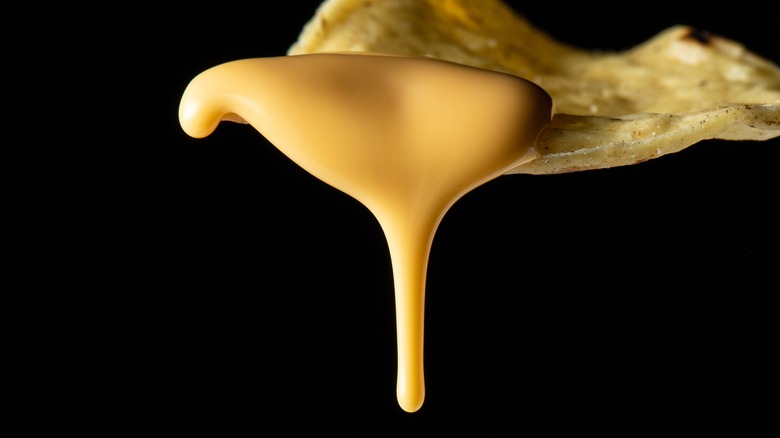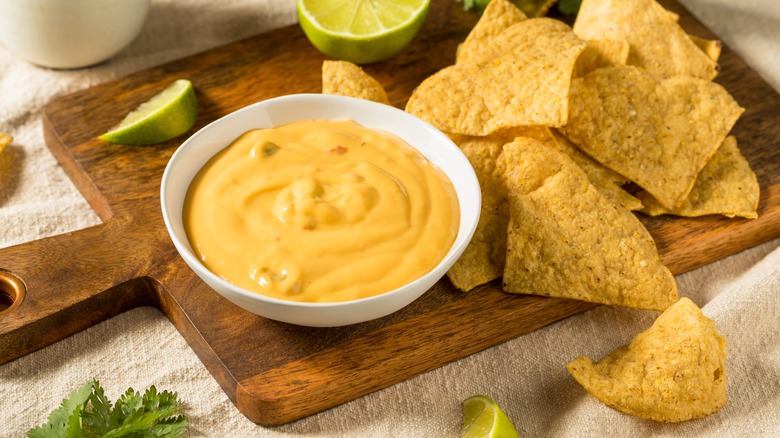The Technical Reason Nacho Cheese Isn't A 'Real' Cheese
When it comes to unique cheeses, fromage foodies far and wide are about as brave as they come. From Nordic cheese that could improve bone health to a global array of risky raw milk cheeses, cheese fans are an intrepid crew. But let's discuss one of the least exotic, most popular types of cheese that even entry-level cheeseheads know and love: nacho cheese. It's golden, gelatinous, and packs a salty, creamy punch in the mouth.
Sporting arenas nationwide are naked without it. In 2019, Time reported that American consumers would most likely put away "four times the normal amount of nachos" on Superbowl Sunday based on past records. (Whatever that figure means, we guess it's probably a lot.) November 6 is even celebrated as National Nachos Day (via National Today). The passionate fan bases of nachos and cheese intersect for this iconic foodstuff. But even the most zealous fan might be hard-pressed to tell you with any authority what nacho cheese actually is.
The FDA refuses to define it and has no regulations for what "nacho cheese" constitutes. According to Bloomberg, the FDA has definitions for more than 70 different types of cheese: parmesan, gruyere, cheddar, mozzarella, and countless others. But "nacho" is sorely lacking from the list. Here's why nacho cheese technically isn't "real" cheese at all.
Nacho cheese isn't made from a specific cheese
Nacho cheese isn't made from one specific type of cheese or blend. The recipe differs from company to company, says Peggy Armstrong of the International Dairy Foods Association via Food & Wine. Aurora Gonzalez, a spokeswoman for PepsiCo (parent company of Doritos), says Doritos' nacho cheese combines cheddar and Romano. Old El Paso's nacho cheese is cheddar and blue. So, there's no taxonomic classification for that lush golden tidal wave you dump out of an aluminum can and onto that eager pile of hint-of-lime tortilla chips.
General Mills spokesperson Mike Siemienas told Bloomberg that nacho cheese "really is based on what consumers are used to and what they believe nacho cheese flavor is." The comment inspires more questions than answers. "Nacho cheese is whatever you want it to be" isn't exactly what consumers might expect or want to hear from one of the largest food manufacturers in the U.S. market. But, Frito Lay makes a line of "Munchies" Nacho Cheese Sandwich Crackers, which sort of encapsulates what Siemienas might have meant.
It's fitting that nacho cheese enjoys the same universality and ambiguity as nachos. A person named Ignacio Anaya is credited with first inventing nachos in 1943, according to Mental Floss and Adán Medrano. But, since Anaya didn't seek a patent, nachos are in the public domain; they belong to everybody. They're your nachos, my nachos, our nachos — and nacho cheese is (technically speaking) whatever your heart tells you it is.

